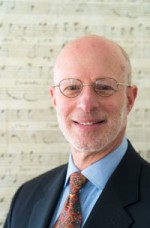by Mike Telin

“It’s an organization for the entire early music community throughout North America,” Donald Rosenberg said during a recent Skype conversation. “It serves professionals, students, amateurs and enthusiasts. It serves as the go-to place for the early music field, which is growing so rapidly these days that I think it will become even more important to more people in the future. So I’m just thrilled to be associated with the organization and to have the chance to reach out and spread the word about early music.”
“EMA now has a Young Artist Competition that will be held in Chicago in November,” Rosenberg added. “They also do programs in collaboration with festivals — for example, the Berkeley Early Music Festival in California this year.
Rosenberg, who succeeds Benjamin Dunham as the magazine’s editor on July 1, said he looks forward to working with EMA’s executive director Ann Felter, the board, the staff, and a host of writers, while building on the significant achievements made by Dunham. In announcing Rosenberg’s appointment, Felter said, “I am very excited about working with Don. He has great ideas, a clear vision and understanding of the wide range of constituents we reach, and will bring a true team approach to our programs.”
Debra Nagy, artistic director of Cleveland’s Les Délices, said, “As an EMA board member, I was thrilled to learn that Don had been selected to be EMA’s next magazine editor. As we all know, Don’s a great writer and critic, and he’s had the opportunity to be a keen observer of the early music movement in the U.S. both nationally and within Northeast Ohio with renowned HPP programs such as CWRU and Oberlin and such ensembles as Apollo’s Fire, Les Délices, and Quire Cleveland, among others. It will be exciting to see the directions he takes for the magazine, which is one of Early Music America’s flagship programs.”
Rosenberg said the quarterly magazine’s purpose is to connect all of EMA’s constituents in order to inform them about what is happening in the field and to provide information both of a scholarly nature and contemporary currency. “The magazine covers a broad array of topics including features about people involved in the early music scene as well as disc and book reviews.” And while he has many ideas for the future, at the moment, he said, “I want to reach out to as many constituencies as possible. I want the magazine to be appealing to the professional musician, but also to the recorder player who is devoted to this music. I want the stories to be very engaging and in touch with what is going on in the field today. It’s old music but it’s old music that’s coming to life because of the people who play it, study it, and continue to discover it.”
Donald Rosenberg brings a wealth of experience to the position, having covered classical music and the early music scene in Northeast Ohio as an arts reporter and classical music critic at The Plain Dealer. Additionally, his articles have been published in Gramophone, Symphony, and Early Music America magazines, in Opera News, and on the NPR Music web site. He also teaches music criticism at Oberlin College and is a lecturer for Case Western Reserve University’s Laura and Alvin Siegal Lifelong Learning Program. Rosenberg has also has served as President of the Music Critics Association of North America.
“Early Music is really in the mainstream now — it’s not the niche that it used to be. There are so many ensembles and artists who are performing this music in a historical style and discovering new things about repertoire we never new existed,” Rosenberg pointed out. “There’s so much of it. We’re talking about nine centuries’ worth of music. That’s a lot of music and a lot of discovering to do.”
Part of the reason for the continued growth of North America’s early music scene can be traced directly to the Cleveland area. “Both Case Western Reserve University and Oberlin are two of the major institutions in the world for early music education. Their academic programs have been in place for some time and they continue to turn out students who are going into the field.”
Rosenberg said that he finds the local early music scene to be quite strong. “We’re very lucky in Cleveland. Oberlin’s Baroque Performance Institute was founded in 1971 and Apollo’s Fire in 1992. And Les Délices is now five years old,” he added, pointing out that there are others as well.
“A lot of players of early music came from modern instruments and many have had noted careers in both,” he noted. “Catharina Meints is an ideal example. She played in the Cleveland Orchestra for almost 40 years or so while she was also playing baroque cello and gamba. So there are people who perform both, but there are also people who only perform early music. And that’s because there is an increasing need for their services and audiences want to hear this music.”
For more information, contact Early Music America at (412) 642-2778, or visit EMA’s web site.
Photo of Donald Rosenberg by Sally Brown.
Published on ClevelandClassical.com April 15, 2014.
Click here for a printable copy of this article.


